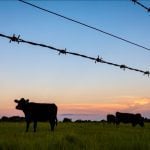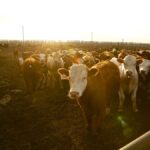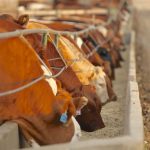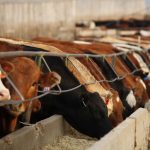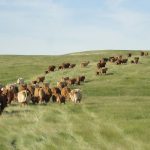Fed cattle The western Canadian fed cattle market has strengthened to $172.26/cwt, an increase of four per cent or just over $7/cwt. Compared to a year ago, the mid-May average is $8.83/cwt higher. While the average price increase is favourable, there are cost increases and higher break-even levels on these cattle, record-high cost-of-gain and the […] Read more
